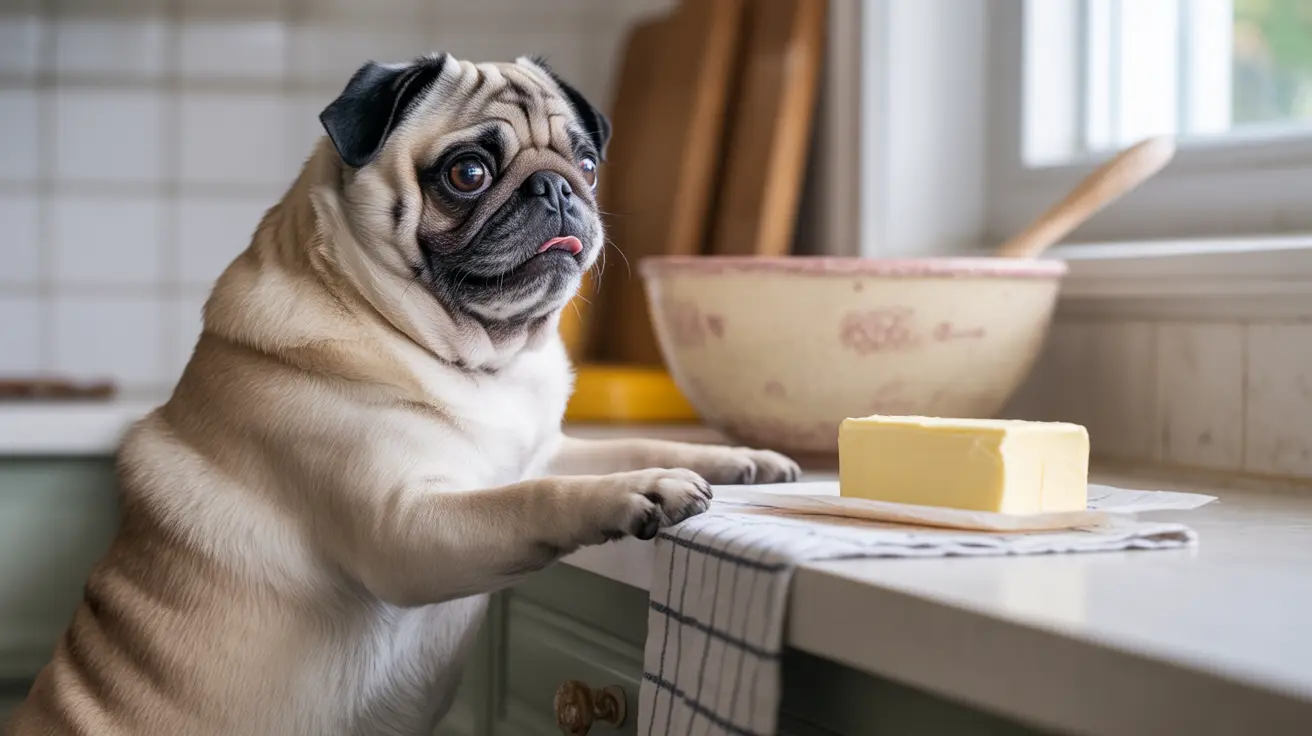Understanding Butter and Dogs
Many pet owners wonder about sharing human foods with their furry friends, and butter is a common concern. While butter isn't technically toxic to dogs, it's important to understand why veterinarians and pet nutrition experts generally advise against feeding it to your canine companion.
In this comprehensive guide, we'll explore the risks and considerations of butter consumption in dogs, helping you make informed decisions about your pet's diet and health.
The Risks of Feeding Butter to Dogs
High Fat Content and Calories
Butter consists of approximately 80% fat, making it an extremely calorie-dense food. A single tablespoon contains about 100 calories - a significant portion of a dog's daily caloric needs, especially for smaller breeds. Regular consumption can quickly lead to weight gain and obesity-related health issues.
Digestive Issues and Lactose Intolerance
Many dogs are lactose intolerant, lacking the necessary enzymes to properly digest dairy products like butter. Even small amounts can trigger uncomfortable digestive symptoms including:
- Diarrhea
- Vomiting
- Stomach upset
- Gas and bloating
- Abdominal discomfort
Risk of Pancreatitis
Perhaps the most serious risk of butter consumption in dogs is pancreatitis - a potentially life-threatening inflammation of the pancreas. The high fat content in butter can trigger this dangerous condition, which requires immediate veterinary attention and can lead to severe complications.
What Happens If My Dog Eats Butter?
Small Amounts
If your dog accidentally consumes a small amount of butter, they may experience mild digestive upset. Monitor them for signs of discomfort, but in most cases, no immediate veterinary intervention is necessary.
Large Quantities
When dogs consume large amounts of butter, especially entire sticks or butter with packaging, the situation becomes more serious. Watch for these warning signs:
- Severe vomiting or diarrhea
- Lethargy
- Loss of appetite
- Signs of abdominal pain
- Fever
Prevention and Safety Tips
To keep your dog safe from butter-related health issues:
- Store butter securely out of your dog's reach
- Never intentionally feed butter as a treat
- Be cautious with butter-rich foods and baked goods
- Keep garbage bins secured to prevent access to butter wrappers
- Consider healthy alternatives for treats, such as xylitol-free peanut butter
Frequently Asked Questions
Is butter toxic to dogs, and what happens if my dog eats it?
Butter isn't toxic to dogs, but it can cause digestive issues and other health problems. If your dog eats butter, they may experience stomach upset, diarrhea, or vomiting. Large amounts can lead to more serious conditions like pancreatitis.
Can dogs have butter in small amounts, or should it be avoided completely?
While small, accidental amounts of butter likely won't cause serious harm, it's best to avoid feeding butter to dogs completely. There's no nutritional benefit, and the risks outweigh any potential rewards.
What are the health risks of feeding butter to dogs, including pancreatitis?
The main health risks include obesity, digestive problems, and pancreatitis. Pancreatitis is particularly dangerous and can be triggered by high-fat foods like butter, potentially requiring hospitalization.
What should I do if my dog accidentally eats a lot of butter or a butter wrapper?
Monitor your dog closely for signs of distress. If they've consumed a large amount or the wrapper, contact your veterinarian immediately. Watch for symptoms like persistent vomiting, diarrhea, or signs of intestinal blockage.
Are there safe alternatives to butter for dogs, and what should I look for in dog treats?
Yes, there are many safe alternatives to butter. Look for specially formulated dog treats, or use small amounts of xylitol-free peanut butter. Always choose treats specifically designed for dogs and approved by veterinarians.
Conclusion
While butter isn't immediately toxic to dogs, it's best to keep it off their menu entirely. The risks of digestive issues, obesity, and serious conditions like pancreatitis make butter an unnecessary and potentially dangerous addition to your dog's diet. Instead, focus on providing your pet with nutritionally appropriate foods and treats designed specifically for canine consumption.






